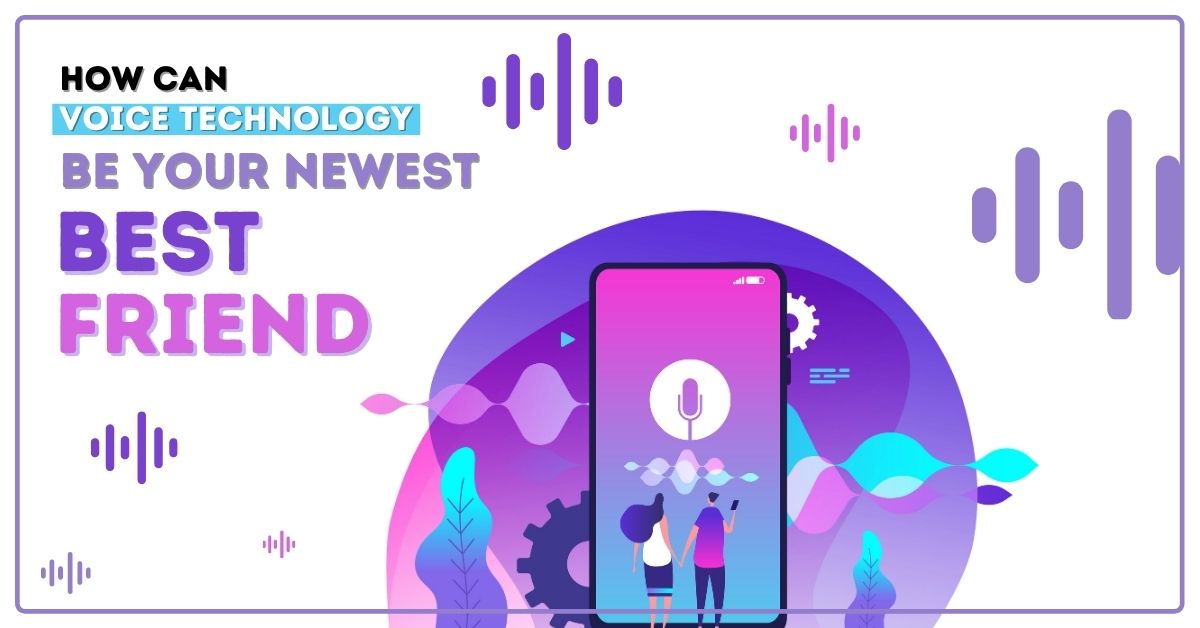

Companies are adapting to voice technologies for better business and aiming at reaching out to millions of people in the next decade. Have you ever wondered what impact it will create in our lives?
The impact of any technology on the shared future of humans can’t be understood upon looking at it in isolation. One needs to see changing behavioral patterns to understand the same. As they say, ‘Necessity is the mother of all inventions’, that’s true for everything humans adapt to. A lot of our inherent needs and values have stood the test of time and the only thing that has changed is how we address it. The ease of doing or getting things done, socializing, leisure, and security aspects are a few things that we all have similar stands on. These unchanging needs are parameters on which we assess the impact of emerging technologies. Here are a few factors on which voice technology can be assessed.
Meaning and Personalization:
The most important factors to understand how voice technology impacts our lives are; personalization and meaning. The idea of being served with objects and experiences that are a tailored fit for us is what most of us desire. Voice technologies have been working on unlocking ways to address the need for personalization. With Amealio, we’re aiming at giving you a personalized dining experience, wherever you want and in lesser time than expected.
Another important aspect of Voice technology is unlocking ways to serve the need for meaningful relationships. These aspects can be understood better in phases, such as simple personalization, advanced personalization, and a quest for meaning. These stages together make up for the changed relationship with AI fueled digital voice technologies. From asking Alexa/Siri to order you some Diet Coke to transacting into a relationship that inculcates the desire for self-knowledge and meaningful relationships, Voice Technology has emerged as a phoenix that rises from its own ashes. To understand things better, let’s look at these stages closely.
The story of digital personalization can’t be narrated without that of data fueled personalization. What you search for makes up for most of your likes/dislikes. These search histories are used to advertise products or services that you might be interested in. AI fueled voice digital assistants is an extension to this kind of personalization. This kind of personalization also raises security concerns but a study by Accenture Interactive found out that 83% people are willing to share their data for a personalized experience as long as the companies are transparent about how the data will be used. Amealio uses your previous food preferences to help you pick out places to eat out at or pick up food from without taking much of your time. Even if you’re a first-time user, your food preferences and dining out options can be amalgamated without much work from your end.
With the evolution of voice assistants, the kind of personalization they offer becomes more complex. This can involve the emotional state of the user and revolving around metrics of well-being. The voice assistants can be used to remind the user about his/her medicines, exercise schedule or to simply hydrate at times. These devices can be linked with the smart watches to administer health conditions of the user at all times. The sensors that come with Voice assistant devices can detect heart rates and alert user about the abnormality. Advanced personalization also includes changing the tone of voice. This can be achieved via data on emotional state of user, which is gained through facial expressions or voice recognition. These assistants can be really beneficial in more ways than we know. For example, an in-car voice assistant suggesting some soothing music because it sensed that the driver was stressing due to traffic.
These AI-backed Voice Assistants have taken over more complex and personalized tasks over time. The advent of such features changes the relationship that the device shares with the user. The user starts seeing it as a counsellor or companions. A very good example of such transition are applications that are used to help user cope up with their mental health issues. A lot of such applications are free of cost and help you identify things like; causes of anxiety, what triggered it, which activity helps an individual, etc. These AI-fueled voice technologies run mental health assistants can help deliver a cognitive behavioral therapy to users when they can’t access a therapist. These assistants might not be able to solve the problem but can reduce the risk of self-harm amongst people who deal with depression. Apart from this, a lot companies are also aiming at creating voice assistants that can be used as conversational companions. It reads the users personality and preferences over time and helps users gain new self-insight. We all want a counsellor or Guru at all times, to guide us and help us with life changing advices. Ever wondered if AI-fueled voice assistants are your very own gurus or therapists? The desirability, adaptation and impact of voice technologies speak for themselves.
The future seems to have adapted to advanced personalization and meaningful relationships. They appear to be opportunities but also come with risks of data misuse. Another dimension here is that personalization around age and gender can increase risks of consolidating stereotypes. The tussle between new technology and human nature isn’t new. What needs further work is the development of frameworks of education and governance. Upon achieving this, we might have unlocked one of the best ways to use AI-fueled voice assistants to our discretion.
USA: One Sansome St Suite 3500, San Francisco, CA 94104
Canada: 4979 Willingdon Ave, Burnby, VG5 3H8
India: Amanora Chambers, Amanora Park Town, Pune 411028
India: T-Hub, IIIT Campus Hyderabad, Telangana 500032